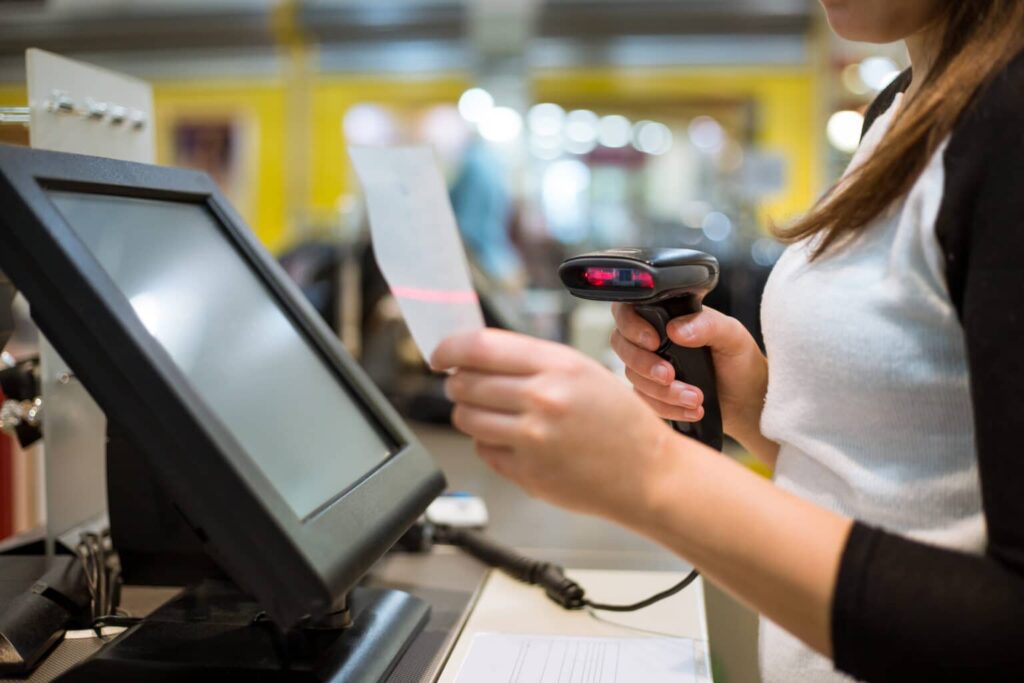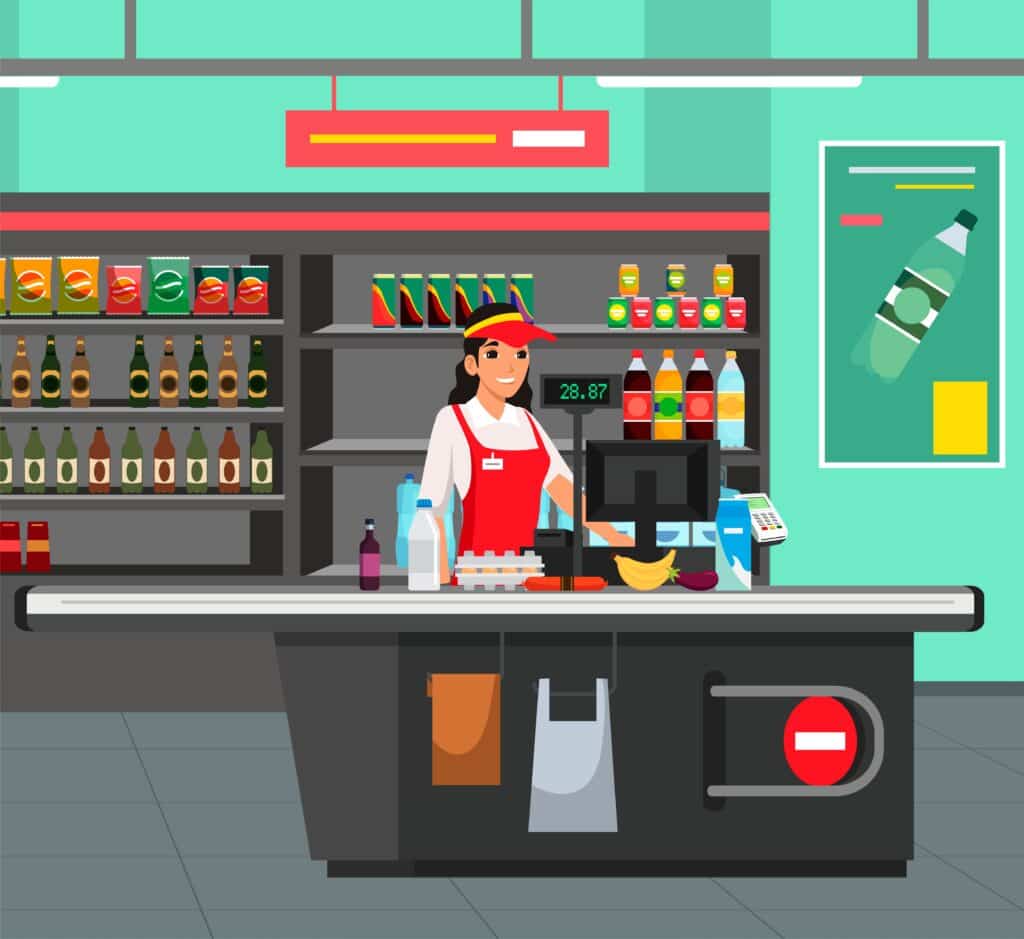In today’s fast-paced world, retailers face an ever-increasing demand for speed and convenience. Enter the point of sale system retail store – a game-changer in the industry that promises to revolutionize how businesses engage with customers. With its advanced features like inventory tracking, sales analytics, and seamless integration with online platforms, this modern technology empowers retailers to stay one step ahead in an increasingly competitive market. Join us as we delve into how adopting a point of sale system can transform your retail store into a thriving business powerhouse.
What is a point-of-sale system?
A point-of-sale system is a comprehensive software and hardware solution that enables the smooth operation of retail stores. In essence, it acts as the central hub for all sales activities, allowing businesses to process transactions, manage inventory, track customer information, and analyze sales data. But a point-of-sale system is more than just a fancy cash register; it can revolutionize how retailers conduct their business.

One key benefit of a point-of-sale system is its ability to simplify and streamline operations. Gone are the days when employees had to manually calculate prices or update inventory counts. With a modern POS system in place, these tasks can be automated, saving time and reducing human errors. Moreover, the integration between various components such as barcode scanners and receipt printers ensures smooth communication between different parts of the business.
This streamlined approach also extends to managing customer relationships. Many POS systems come equipped with built-in customer relationship management (CRM) functionalities that allow retailers to keep track of customer preferences and purchase history. This valuable data can then be leveraged for targeted marketing campaigns or personalized promotions, ultimately improving customer satisfaction and loyalty.
Furthermore, advanced reporting capabilities offered by some point-of-sale systems enable retailers to gain deep insights into their sales performance. By analyzing data such as top-selling products or peak business hours, businesses can make informed decisions regarding pricing strategies or staffing schedules.
In conclusion, while everyone understands that a point-of-sale system is necessary for processing transactions in retail stores, its potential goes far beyond mere monetary transactions. From automating operations
Benefits of using a point-of-sale system
A point of sale (POS) system can bring numerous benefits to retail stores, making it an essential tool in today’s competitive business landscape. One key advantage is the ability to streamline operations and increase efficiency. With a POS system, retailers can automate various processes such as inventory management, sales tracking, and reporting. This not only saves valuable time but also reduces the likelihood of human error that can occur when these tasks are done manually.
Another benefit of using a POS system is improved customer service. By providing access to real-time data, such as inventory levels and product information, store staff can quickly assist customers with their queries and make informed recommendations. Moreover, a POS system enables seamless omnichannel integration so that retailers can offer online ordering options or click-and-collect services. This enhances the overall shopping experience for customers by giving them more flexibility and convenience.
In addition to operational efficiency and superior customer service, a POS system offers valuable insights into sales performance and customer behavior. By generating detailed reports on various metrics like sales volume, revenue breakdowns by product or category, and customer purchase history, retailers gain valuable insights that help them make data-driven decisions for their business strategy. This allows them to identify top-selling products or popular buying trends so they can optimize their inventory accordingly.
In conclusion, utilizing a point-of-sale system brings numerous benefits to retail stores including increased efficiency through automation of tasks like inventory management; enhanced customer service through access to real-time data; and valuable insights into sales performance and consumer behavior through detailed.
Key features to look for in a retail POS system
When it comes to choosing the right retail point of sale (POS) system for your store, there are several key features that you should keep in mind. Firstly, ease of use is essential. Your staff needs to be able to quickly navigate the system and carry out transactions without any unnecessary complications or confusion. Look for a user-friendly interface that can be easily customized based on your specific needs.
Another important feature to consider is inventory management capabilities. A robust POS system should allow you to track and manage your inventory in real time, helping you avoid out-of-stock situations or overstocking items. Look for features like automatic reorder points and integration with suppliers’ systems for seamless inventory management.
Additionally, a reliable reporting and analytics feature is crucial for monitoring the performance of your retail store. This will provide valuable insights into sales trends, customer behavior patterns, and overall business performance. Look for a POS system that offers customizable reports so that you can identify key metrics relevant to your specific business goals.
By considering these key features when selecting a retail POS system, you can ensure that it meets all the requirements necessary to streamline operations and improve overall efficiency in your store.
How to choose the right POS system for your store
When it comes to choosing a point of sale (POS) system for your store, there are several factors to consider in order to make the right decision that suits your specific business needs. One of the first things you should assess is the size and type of your retail store. Are you running a small boutique or a large department store? This will help determine whether you need a basic POS system with limited features or a more robust one that can handle high volume transactions and inventory management.
Another crucial factor to consider is whether the POS system integrates with your other business systems. Seamless integration with your accounting software, customer relationship management (CRM) tools, and inventory management system can streamline your operations and save valuable time. Additionally, make sure that the POS system offers analytics and reporting functionalities, as this will provide valuable insights into sales trends, customer behavior, and overall performance.
Lastly, don’t forget about the importance of ongoing support and maintenance. Look for a POS provider that offers reliable customer service and technical assistance whenever issues arise. A good vendor should also provide regular updates to ensure that your software remains up to date with security patches and new features.
By carefully considering these factors- including store size, integration capabilities, analytics functionality, and ongoing support- you’ll be well on your way to choosing the right POS system for your retail store. Remember that finding the perfect match may require some research and trial periods with different vendors before making a final decision. Ultimately though, investing in an efficient and effective POS system will not.
Implementing a point-of-sale system in your retail store
Implementing a point of sale (POS) system in your retail store can revolutionize the way you operate and transform your business. Gone are the days of manual cash registers and handwritten receipts – a POS system streamlines operations, improves efficiency, and enhances customer experience. With advanced features like inventory management, sales analytics, and integration with other business tools, a modern POS system is an indispensable tool for any retail store.
One key advantage of implementing a POS system is improved inventory management. With real-time tracking of stock levels, you can avoid overstocking or running out of popular items. By setting up automatic alerts for low stock or expiry dates, you can optimize ordering processes and reduce wastage. Additionally, a POS system often offers analytics capabilities that provide insights into which products are selling well and which ones need to be reevaluated.

Furthermore, a modern POS system can seamlessly integrate with other tools that enhance your business operations. For instance, it can integrate with CRM software to provide personalized customer experiences based on previous purchases or preferences. It can also integrate with accounting software to simplify financial reporting and tax compliance. By connecting different aspects of your retail operation through the POS system, you create a cohesive ecosystem that facilitates smooth day-to-day operations.
In conclusion, implementing a point of sale system in your retail store brings numerous benefits such as streamlined operations through better inventory management and integrated systems that enhance overall efficiency. By leveraging the power of technology in managing sales transactions and capturing valuable data about customer behavior, businesses can make
Best practices for using a retail POS system
One of the best practices for using a retail POS system is to regularly update your inventory. By keeping track of your stock levels in real-time, you can ensure that you never run out of popular items and avoid disappointing customers. Additionally, regular inventory updates allow you to identify any discrepancies or shrinkage, helping to maintain accurate records and financial reports.
Another important best practice is to take advantage of the reporting capabilities of your retail POS system. These reports provide valuable insights into sales trends, customer preferences, and employee performance. Utilizing this information allows you to make informed decisions about pricing strategies, promotions, and staffing requirements. Ultimately, analyzing these reports will help optimize your business operations and maximize profitability.
Moreover, integrating your retail POS system with other software solutions can greatly streamline business processes. For example, integrating with an accounting software will automatically transfer sales data and financial information without the need for manual entry. Similarly, integrating with a customer relationship management (CRM) system can provide a holistic view of each customer’s purchasing history and preferences. By leveraging these integrations, retailers can save time on administrative tasks while enhancing the overall shopping experience for their customers.
In summary, following best practices when utilizing a retail POS system is crucial for maximizing efficiency and profitability in today’s competitive market. Keeping inventory updated in real-time helps prevent stockouts and ensures accurate record-keeping. Analyzing reports generated by the POS system provides valuable insights into sales trends and staff performance that inform strategic decision-making. Lastly, integrating the retail POS system with
Conclusion: Boost efficiency and profits with a retail POS system
A retail POS system is not just a tool for processing transactions; it is a powerful tool that can significantly boost efficiency and profits for any retail store. By automating various processes such as inventory management, employee scheduling, and customer relationship management, a retail POS system streamlines operations and allows the business to focus on core growth activities. With real-time sales data at their fingertips, retailers can make smarter decisions about pricing strategies, stock levels, and product placement.
Furthermore, a retail POS system also helps in reducing human error and fraud. By eliminating manual cash handling and providing secure payment options such as chip or mobile payments, the risk of theft or mistakes during the sales process is minimized. Additionally, the comprehensive reporting features of a POS system provide insights into sales patterns and customer preferences that can inform marketing campaigns and improve overall customer satisfaction.
Overall, investing in a retail POS system is not merely an expense but rather an investment in the long-term success of your business. It enhances operational efficiency by automating key functions while improving accuracy and security during transactions. In turn, this boost in efficiency translates into higher profits through optimized decision-making based on real-time data analysis. So why wait? Embrace the power of technology with a robust retail POS system to take your business to new heights of success.
Working with United Banc Card of TN
If you find yourself wanting to conquer your restaurant, retail shop, look no further than United Banc Card of TN. With their innovative solutions and trusted POS System services, they will guide you towards financial success. Whether you are a small business owner or an individual looking to manage your finances better, United Banc Card of TN has the tools and expertise to help. Call us today @615-476-0255


